Lame duck Trump fires his last shots in election defeat
As Joe Biden assumes the role of defacto president, Donald Trump is still seething. And his pain is about to get worse.
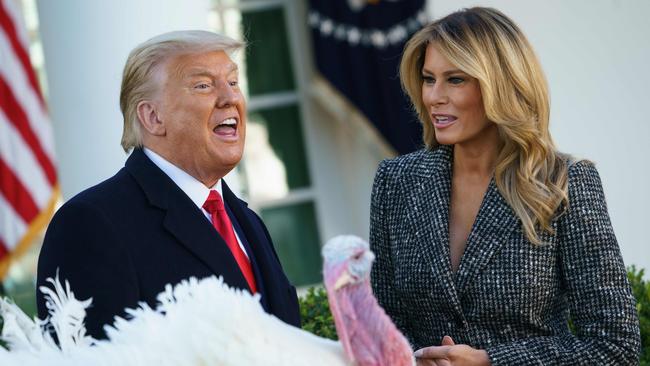
They are now preparing for the change of president like any incoming administration would after Emily Murphy, head of the General Services Administration, which approves presidential transitions, finally ruled that Biden had defeated Donald Trump.
But in reality, very little is normal about what is unfolding in the nation’s capital right now.
Almost four weeks after the November 3 poll that delivered a clear Biden victory, the President remains largely holed up in the White House, stewing on the result and pursuing a doomed legal quest to overturn it. What’s more, despite some Republicans breaking ranks to accept a Biden victory, the silence from leadership of the party is deafening.
For now, key Washington Republican powerbrokers such as Senate majority leader Mitch McConnell and house minority leader Kevin McCarthy have remained quiet and loyal to Trump, refusing to concede publicly the obvious Biden victory.
Biden, for his part, is forging ahead as if nothing unusual is afoot. He has named his national security team, a group of experienced Washington insiders and traditionalists, sending a clear signal that he intends to wipe out Trump’s “America first” legacy on the international stage.
“Together, these public servants will restore America globally, its global leadership and its moral leadership,” Biden declared. “It’s a team that reflects the fact that America is back — ready to lead the world, not retreat from it.”
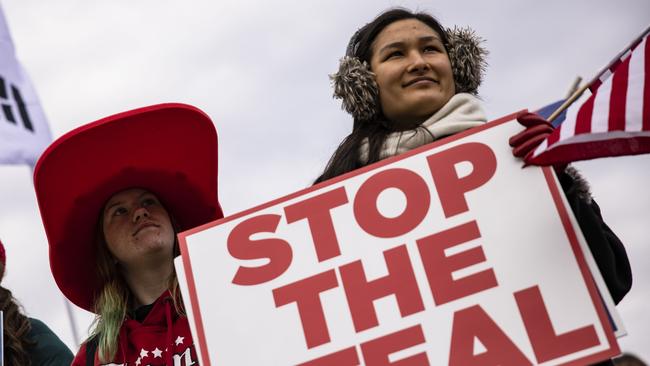
Biden is already assuming the de facto role as president in the absence of an almost invisible Trump. This week, as Trump was tweeting “RIGGED ELECTION”, Biden gave an empathetic presidential-style Thanksgiving speech imploring Americans to wear masks and be extra cautious during the public holiday as the coronavirus rages. The split-screen contrast between Biden and Trump was a reminder of how different these two men are.
But so many questions remain unanswered about this uncertain moment in the country’s history.
With almost two months left in office, what will a wounded and unpredictable Trump do next? Will he continue his legal fight until the end, will he ever concede his defeat and will he try to cause maximum havoc until Biden raises his right hand on January 20?
Biden is also raising questions about members of his new national security team, with supporters hailing a return to traditional diplomacy and detractors describing them as a throwback to the Obama era — the same “swamp” that inadvertently helped Trump win the White House in 2016.
Trump chose this week not to fight the GSA’s decision to green-light the formal transition process even though Murphy’s decision — which had been delayed for weeks — was a formal recognition by the US government that Biden had won the election.
In truth, Trump did not have a choice. Murphy maintained that she came to the decision herself, without pressure from the White House. In practice her decision means Trump can continue to stew on the result and pursue his impossible legal campaign without it affecting the incoming president.
But the decision by the GSA’s Murphy — a Trump appointee — also makes Trump’s ongoing refusal to accept the result ever more absurd.
Trump has lost the support of a growing number of Republicans — but not the leadership — since the farcical press conference by Trump lawyers Rudy Giuliani and the now-sidelined Sidney Powell where both promulgated wild conspiracy theories about election fraud.
Trump ally and former Republican governor of New Jersey Chris Christie described the President’s legal team as a “national embarrassment” while former Republican house Speaker Paul Ryan said they were offering “baseless conspiracy theories”.
Ryan went further and said what other Republicans have refused to voice — that Trump’s actions in fighting the election result are damaging the faith of many Americans in the democratic process. Polls say around half of all Republicans believe the election was stolen from Trump, meaning that at least 37 million of the roughly 74 million Americans who voted for Trump believe a massive electoral fraud has been perpetrated on the country.
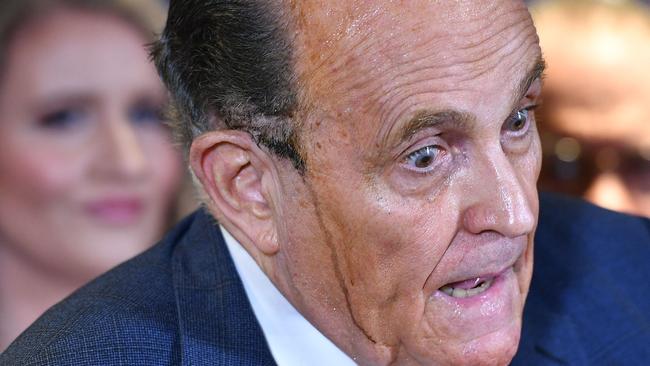
“The election is over, the outcome is certain,” Ryan said. “I think it’s really important that we respect the will of the people, and if we don’t, we end up doing damage to our country, to our democratic institutions and norms and to the cause of freedom. So frankly, I really think it’s in the President’s best interest to acknowledge these things (and) embrace the transfer of power.”
The probability of Trump ever acknowledging defeat or the legitimacy of the result appears unlikely. He reportedly has told advisers that “everyone loves a fighter” even if the cause is hopeless. A popular theory in Washington is that Trump believes he will increase his appeal to his base if he leaves office as an aggrieved martyr rather than a defeated one-term president. He believes this will help him to remain a kingmaker in Republican circles after he leaves office and would provide a springboard for another presidential campaign in 2024.
But how Trump manages to refuse to concede defeat while preparing to leave office for a result he does not accept is a difficult two-step. For now, he has vowed to pursue all remaining legal avenues to challenge the election outcome in which Biden won by 306 electoral college votes to 232 with a record 80 million votes — six million more than Trump.
But Trump’s legal campaign has had a succession of legal defeats, with not a single victory to its name and not a single vote overturned by a court due to fraud.
This week the swing states of Pennsylvania, Nevada and Michigan certified their results, making them official. The Trump team is still filing longshot legal suits in Pennsylvania and Nevada to overturn these certified results and is awaiting recounts in Wisconsin and Georgia. The recounts are not expected to reverse Biden’s wins in those two states.
In Pennsylvania, the Trump team is trying to win approval to apply to the US Supreme Court to challenge the Biden victory in that state. But legal experts say it is highly unlikely that the nation’s highest court would accept the case, much less reverse the outcome. Biden still would win the election without Pennsylvania.
The question is whether the unpredictable Trump will try to make life difficult for Biden in his remaining months in office.
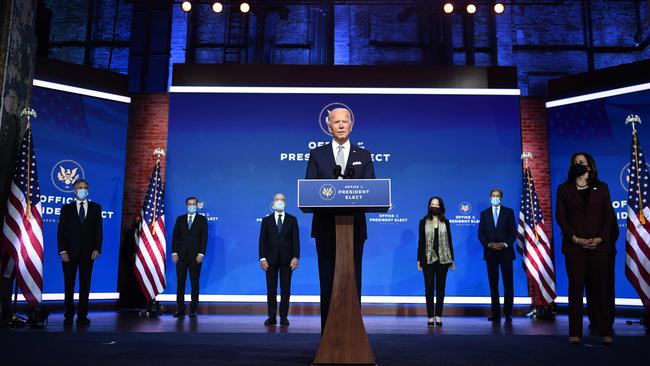
The President has already shown a willingness to settle scores against those who challenge him, having sacked defence secretary Mark Esper and election security official Christopher Krebs. There is speculation that FBI chief Christopher Wray and CIA director Gina Haspel also may be on Trump’s hit list and possibly even infectious diseases expert Anthony Fauci.
Trump has used his time so far as a lame-duck leader to install loyalists into positions at the Pentagon. He has overruled his generals with his decision to half the number of US troops in Afghanistan by mid-January, just days before Biden is appointed.
He has pardoned his former national security adviser Michael Flynn whose ongoing legal issues after being convicted for lying to the FBI had been a flashpoint for conservatives. The President also has pushed to rush through sales of oil drilling leases in Alaska to lock in drilling rights, knowing that Biden plans to ban all new drilling on federal land and water as part of his climate change plan.
Trump also is likely to move on other issues in the weeks ahead, especially because his 78-year-old successor has signalled strongly this week that he will wipe out as much of the Trump legacy as he can.
Biden’s national security team of Antony Blinken as secretary of state, Jake Sullivan as national security adviser, Alejandro Mayorkas as homeland security secretary, Avril Haines as director of national intelligence and Linda Thomas-Greenfield as US ambassador to the UN, and John Kerry as climate envoy, is designed to remove Trump’s legacy on the international stage.
“I want to say to you America is back, multilateralism is back, diplomacy is back,” Thomas-Greenfield said.
Biden’s team is full of centrist, experienced Washington policymakers who support a more outward-looking America that recognises and builds on traditional alliances with countries such as Australia. They could not be more different from the outsiders such as Flynn, Rex Tillerson and Steve Bannon, whom Trump chose in his attempt to distance himself from what he derided as the Washington “swamp” and the “deep state”.
Their first order of business will be to do everything that Trump has opposed. They plan to recommit the US to the Paris Agreement, re-engage in multilateral forums, examine the possible recommitment to the Iran nuclear deal, promote the climate change issue and turn their backs on leaders such as Russian President Vladimir Putin and North Korea’s Kim Jong-un.
“(Biden’s) presidency may be the establishment’s last, best chance to demonstrate that liberal internationalism is a superior strategy to populist nationalism,’ says Thomas Wright from the Brookings Institution.
“(They) are experienced, crisis-tested leaders who are ready to hit the ground running on day one,” says Biden. “These officials will start working immediately to rebuild our institutions, renew and reimagine American leadership.”
But there is concern in some quarters in Washington that Biden’s team will not so much be “reimagining American leadership” as it will be repeating it with reheated policies from the Obama era. Republican senator Marco Rubio put it this way on Twitter: “Biden’s cabinet picks went to Ivy League schools, have strong resumes, attend all the right conferences & will be polite & orderly caretakers of America’s decline. I support American greatness. And I have no interest in returning to the ‘normal’ that left us dependent on China.”
Republican senator Josh Hawley called the Biden team “a group of corporatists and war enthusiasts and #BigTech sellouts”, while Republican Tom Cotton claimed they were “panda huggers who will only reinforce (Biden’s) instincts to go soft on China”.
Biden responded by saying that he, along with all of Washington, had hardened his views of China from the Obama era and vowed not to be soft on Beijing. “This is not a third Obama term,” Biden said. “We face a totally different world to that we faced in the Obama-Biden administration.”
His nominee for secretary of state, Blinken, has claimed a Biden administration would be tougher than Trump on China, not softer.
“By every key metric, China’s position is stronger and ours is weaker as a result of President Trump’s leadership,” Blinken said in a recent interview.
“His actions have helped advance most of China’s strategic goals — weakening American alliances, withdrawing America from the world and leaving a vacuum for China to fill; a green light to trample on human rights and democracy; debasing our own democracy by attacking it.”
There are signs that some in the Biden team, including national security adviser Sullivan, are aware of some of the mistakes made by the Obama administration.
Sullivan recently acknowledged that when supporting trade pacts such as the Trans-Pacific Partnership, he, the Democrats and the Obama administration overlooked some of the adverse effects on ordinary American workers. Trump was hugely successful in tapping into these fears when he won office in 2016.
“I think it would be a mistake to say that because these are names we know (in the Biden team) that it’s going to be a repeat of the policies we’ve seen,” Jenna Ben-Yehuda, president of the foreign policy-focused Truman Centre, told The Washington Post. “These are smart people who’ve seen the world shift under Trump.”
Trump this week lamented Biden’s plans to scrap his “America first” approach to foreign policy. “As I say, America first, shouldn’t go away from that: America first,’ Trump said at the White House while pardoning a Thanksgiving turkey called Corn.
Trump soon will go through the painful process that Barack Obama went through in the past four years as his successor tries to dismantle what he has achieved as President. The Biden team has already flagged that Inauguration Day on January 20 will be very different this year because of the coronavirus pandemic.
Speculation is growing that Trump intends to make this inauguration even more unique by being the first incumbent president in a century not to attend the swearing in of his successor.
It is a reminder that nothing in Washington will really be back to “normal” until Trump vacates 1600 Pennsylvania Avenue.


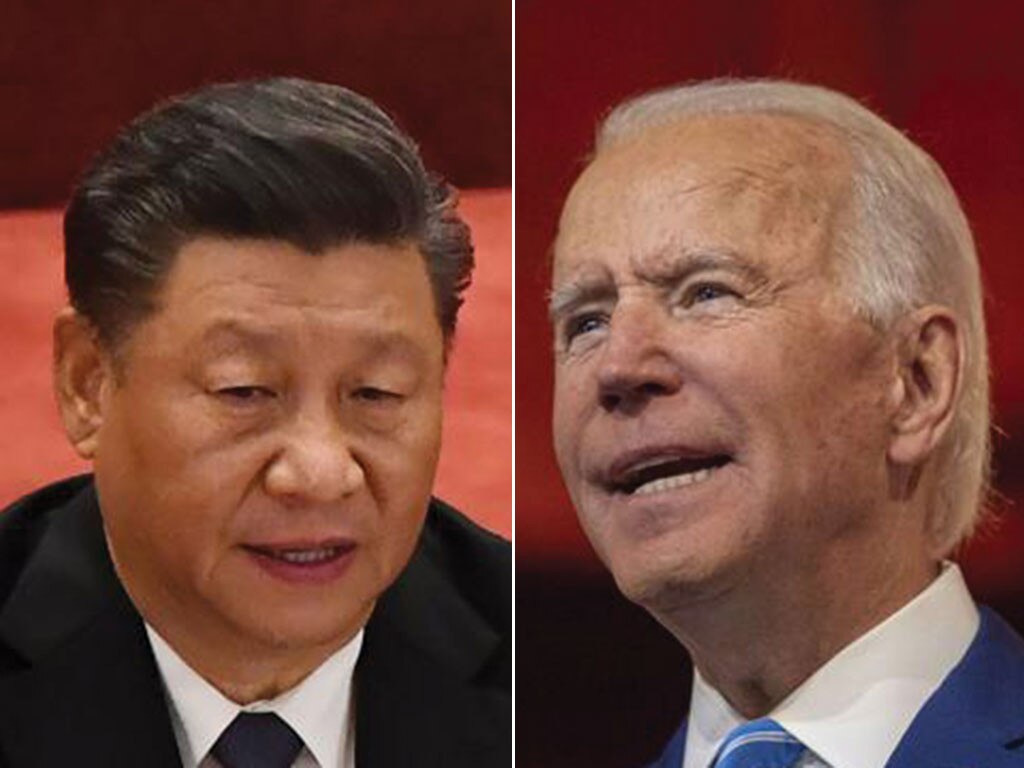
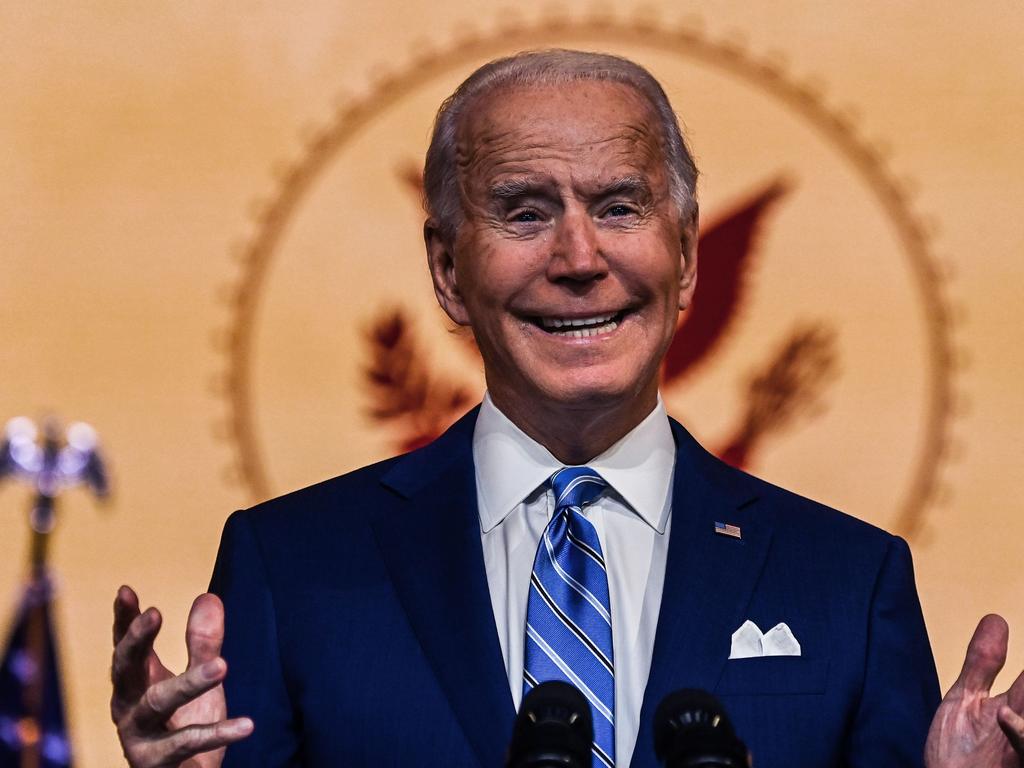

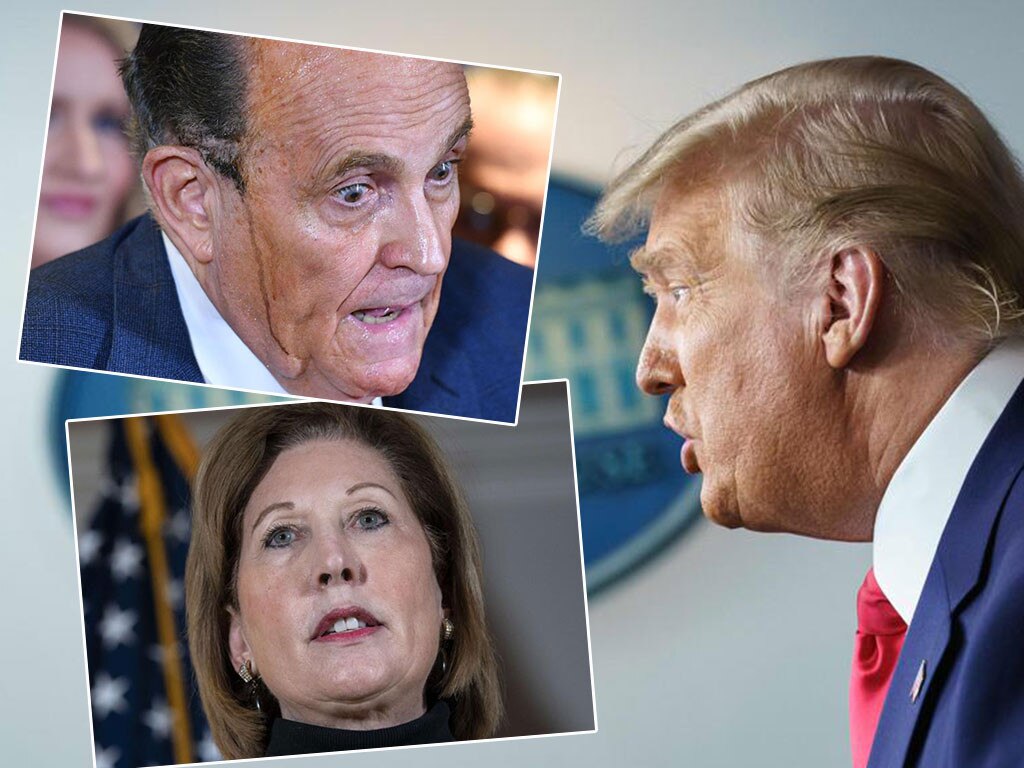


On the surface Washington seems to be pretending that all is normal. This week members of president-elect Joe Biden’s transition team received their government-issued iPhones and computers along with their new .gov email addresses.